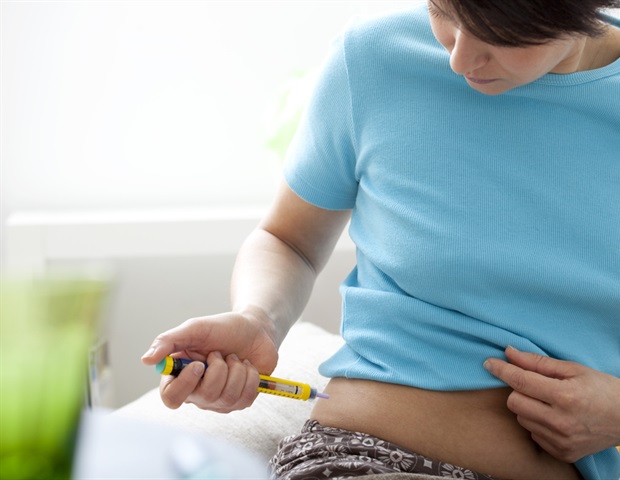What is diabetes?
Diabetes is a serious condition where your blood glucose level is too high.
It can happen when the pancreas is no longer able to make insulin, or when the body cannot make good use of the insulin it produces. Or, when our body doesn't produce enough insulin.
Insulin is a hormone made by the pancreas, that acts like a key to let glucose from the food we eat pass from the blood stream into the cells in the body to produce energy. All carbohydrate foods are broken down into glucose in the blood. Insulin helps glucose get into the cells.

Types of Diabetes
There are some different types of diabetes and they are:
- Type 1 diabetes
- Type 2 diabetes
- Gestational diabetes
Type 1 diabetes

Type 1 diabetes means that the body does not produce enough insulin which means that person need daily insulin injections to maintain blood glucose levels under control. It is also know as juvenile diabetes or insulin-dependent diabetes.
It is caused by an autoimmune reaction where the bodyís defence system attacks the cells that produce insulin. As a result, the body produces very little or no insulin.
It can develop at any age, but occurs most frequently in children and adolescents.
People with type 1 diabetes need daily injections of insulin to control their blood glucose levels.
Symptoms of type 1 diabetes:
- Polydipsia (increased thirst and dry mouth)
- Frequent urination
- Lack of energy, tiredness
- Unexplained weight loss
- Unexplained weight loss
- Blurred vision
Diagnosing type 1 diabetes can be difficult so additional tests may be required to confirm a diagnosis.
Consult your doctor if you notice any of the above signs and symptoms in you or your child.
Type 2 diabetes

Type 2 diabetes means that the bodyís cells donít respond normally to the insulin or body cannot use insulin properly.
Because of insulin cannot work properly, blood glucose levels keep rising, releasing more insulin.
This is the most common type of diabetes and it usually occurs in middle-aged and older people.
Symptoms of type 2 diabetes:
- Polydipsia (increased thirst and dry mouth)
- Frequent urination
- Polyphagia (excessive hunger)
- Unexplained weight loss
- Fatigue
- Blurred vision
- Slow-healing wounds
- Frequent infections
- Tingling or numbness in hands and feet
Gestational diabetes

Gestational diabetes is diabetes develops in some women during their pregnancy.
During pregnancy some women develop high blood sugar. Gestational diabetes (GD) usually appears during the middle of pregnancy, between 24 and 28 weeks.
Developing GD doesnít mean you already had diabetes before you got pregnant. The condition appears because of the pregnancy. A healthy diet and exercise can usually keep GD under control, but some women need insulin.
Gestational diabetes symptoms:
Gestational diabetes doesn't usually cause noticeable signs or symptoms. But some women experience:
- More-frequent urination
- Nausea
- Thirst
- Fatigue
